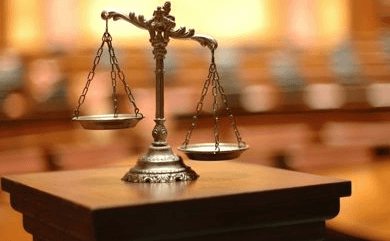
In these times, the sight of a public gathering of hundreds of people mostly without face masks is alarming.
But that is what happened at a demonstration against the shutdown measures in Washington State.
“We believe that the state governor has gone beyond his constitutional authority in shutting down businesses and ordering people to stay at home,” organiser Tyler Miller says from the grounds of the state capitol.
In mid-March, Washington Governor Jay Inslee announced an emergency proclamation mirroring many issued around the world; closing restaurants and bars and banning large gatherings.
But protesters say that was unconstitutional.
“The state constitution says that the right of the people to peaceably assemble shall never be abridged. We believe that the (emergency coronavirus) proclamations that the governor here ordered violate that,” Mr. Miller says.
Mr. Miller said he was not protesting against the recommendations from the public health bodies and respected the need to ‘flatten the curve’.
“I even self-quarantined for 14 days back at the very beginning of this myself, when I had an illness that mirrored some of the symptoms,” he says.
“The fact I am protesting does not mean I think it is a good idea to have gatherings, I just believe that the government has no authority to prohibit them.”
Throughout the crisis, Mr. Miller has also been able to continue his work as an engineering technician with the US Navy.
He says the thing that has angered him is what he feels is an un-American overreach of power by the Democratic governor.
The restrictions differ from state to state, and about 20 states have had protests against the measures. These demonstrations vary in size from a few dozen people to thousands.
They come as the US finds itself still very much in the grip of this crisis.
There has not yet been a sustained drop in the numbers of US deaths linked to Covid-19 and yet the clamor to lift restrictions is coming not just from those taking to the streets but from politicians too.
“The hysteria that surrounded the coronavirus from the beginning was disproportionate,” says Rick Becker, of North Dakota.
“There was an overreaction by state governments with regard to mandatory shutdowns, shelter in place, and so forth,” he says.
When it is put to the state representative that tens of thousands of people have died across the country and that it could have been many more if restrictions were not in place, he dismisses the notion.
“That is something that you’re going to be able to say no matter what; that there may have been more deaths,” says Mr. Becker, who is also a qualified doctor.
“You’re taking the ‘if it saves just one life’ argument, and I would say that if I would drive 20mph instead of 50mph, it’s possible that I might not kill somebody, and you can look at all aspects of our lives that way. But our whole way of life in this country would collapse and we can’t live a life that way.”
In neighboring South Dakota, one of those who died with the coronavirus was Bob Glanzer, a state representative.
“He was a very caring, giving, listening type of individual and certainly faith was a big part of his life. He’s going to be sorely missed in the legislature,” says party colleague Jean Hunhoff.
Representative Hunhoff describes how she and other legislative members lined the route of Mr. Glanzer’s funeral procession waving American and South Dakota flags.
There were social distancing measures in place for the commemorations, even though South Dakota is one of a handful of states where a state-wide stay at home order has never been imposed.
“I support the decisions of our governor. She laid out guidelines and then really left the decisions up to local communities,” says Jean Hunhoff, who also has a public health background.
“I am a registered nurse and I believe it is data that should drive decision making and I think we have done that here. It is easy to stand on the outside and post-judgment.”
There has been criticism of states like South Dakota that have refused to issue state-wide shut down directives in spite of coronavirus outbreaks there.
Polls show the majority of Americans are still in favour of measures imposed to try to curb the spread of the virus. And some are vehemently opposed to the protests.
Mary Turner, a nurse leader in an intensive care unit in Minnesota, describes them as a “kick in the teeth” because of the risks she and her colleagues are taking.
“These protests here are so discouraging. With no one doing social distancing or wearing masks, and they all say they are outraged. I don’t know if this is a problem anywhere else in the world.”
But the placards at the demonstrations decrying government interference suggest those involved feel there are bigger issues at stake than public health.
“Scepticism of the government is a deep strain in America. It waxes and wanes – though we’re in a period where it’s been waxing for quite a while,” says Theda Skocpol, author and professor of government and sociology at Harvard University.
With regard to the anti-shutdown protests, Professor Skocpol says it is political beliefs and not economics that have definitely been the driving force.
The post Coronavirus: The US resistance to a continued lockdown appeared first on Citinewsroom - Comprehensive News in Ghana, Current Affairs, Business News , Headlines, Ghana Sports, Entertainment, Politics, Articles, Opinions, Viral Content.
Read Full Story




















Facebook
Twitter
Pinterest
Instagram
Google+
YouTube
LinkedIn
RSS